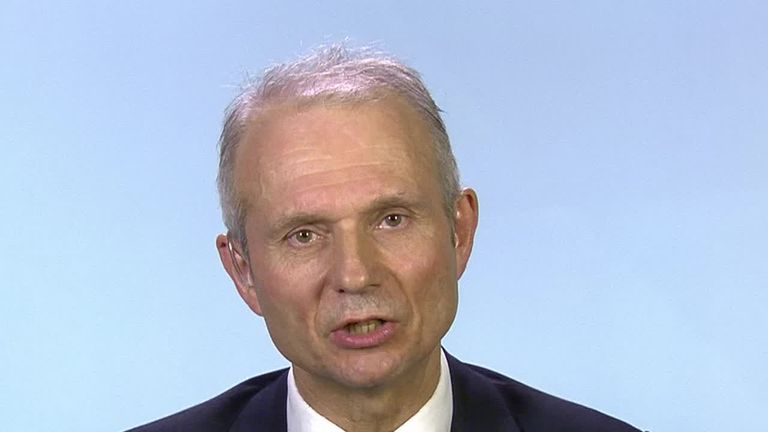What could happen if PM's Brexit deal is rejected

Tuesday 15 January 2019 14:22, UK
Tom Rayner, political correspondent
It has long been the conventional view in Westminster that Theresa May's Brexit divorce deal is facing near-certain defeat.
So what difference would the size of the loss have on the next steps?
Making firm predictions given the fluidity and uncertainty of these scenarios is almost impossible, but here are some possible scenarios that could play out.
Loss by 50 votes or fewer
Historically speaking this would still be significant because when governments are defeated it tends to only be by a few votes.
Given the Brexit deal has been the central focus on her government, losing at all would normally be seen as an indication that Mrs May was unable to deliver her agenda and she would be expected to step down.
However, a loss of up to 50 votes would instead probably be considered a victory by Downing Street.
A loss of that scale would likely see Mrs May attempt to keep her deal alive by going back to the EU and arguing that further concessions could be enough to see the deal they want ratified.
If she secured further changes, she would likely bring the deal back for another vote in parliament in February.
At this stage, the EU have been adamant no further negotiations around the withdrawal agreement will be countenanced, but this is perhaps the scenario where that position might be tested.
It is also questionable whether Jeremy Corbyn would in these circumstances bring an immediate motion of no-confidence in the government in his efforts to trigger a general election.
He wants an election but would come under pressure to change course and pursue a second referendum if he was unable to trigger one. Given his reluctance to endorse a so-called "People's Vote", he would likely hold fire until the deal is voted on again by parliament.
Loss by around 100 votes
This would be up there with some of the biggest defeats ever suffered by a government in parliament.
According to Professor Philip Cowley of Queen Mary University, a defeat of more than 100 has only happened three times in the last century - when Ramsay MacDonald's Labour minority government was defeated by 166, 161 and 140 votes in 1924.
The biggest government defeat since 1945 was in the last days of Jim Callaghan's minority government in 1979, when it lost a vote by 89.
But despite the historical precedents, even in this scenario there are some in Westminster who argue Mrs May's deal would not necessarily be totally dead.
It would, however, be in an extremely critical condition and would require some major shifts from the EU if it were to come back to parliament in a form that even remotely resembles its current state.
The degree to which the government position might be required to change in this scenario would also be significant - a delay to Article 50 and the 29 March exit in order to formulate a new approach may look increasingly necessary.
In this event there is a possibility the government might hold a series of "indicative votes" to establish what alternative approaches might command a majority in parliament, as a basis for the next step.
At this point Mrs May would probably start to come under pressure from some within her own party to resign as prime minister and allow a new Conservative leader to take the reins.
But given she survived a no-confidence vote by her party last year, Mrs May is immune from internal challenge and so stepping down would have to be something she chose to do, which currently seems unlikely.
Mr Corbyn would be far more likely to put forward a no-confidence motion in the government in this scenario, but it is not clear if he would win as it's unlikely the DUP or enough Tory rebels would vote to bring down the government.
Loss by more than 200 votes
This is the result most analysts are predicting if MPs do indeed vote on a straightforward motion asking whether or not they endorse the withdrawal agreement.
A loss of this scale would be one of the largest on record in the House of Commons, and would raise serious questions about Mrs May's future.
Labour would likely seek an immediate motion of no-confidence in the government to try and force a general election, while cross-party efforts seeking various other options such as seeking a second referendum, or shifting tack to a Norway-style Brexit, would likely kick into overdrive.
But the ultimate test will be whether there is a parliamentary majority for any of these alternative options.
Hardcore Brexiteers insist that no-deal is something that could be managed, and the prospect of it could even bring the EU back to the negotiating table.
But most importantly, they say the House of Commons has already voted for no-deal, by triggering the time-frame set by Article 50 and passing the EU Withdrawal Act that put the 29 March exit date into law.
Unless there is a majority in parliament sufficient to re-write that law, or a government prepared to change it in favour of something else, it still remains the default outcome.
:: Follow and watch the Brexit vote live with a special programme on Sky News from 6-10pm on Tuesday evening





